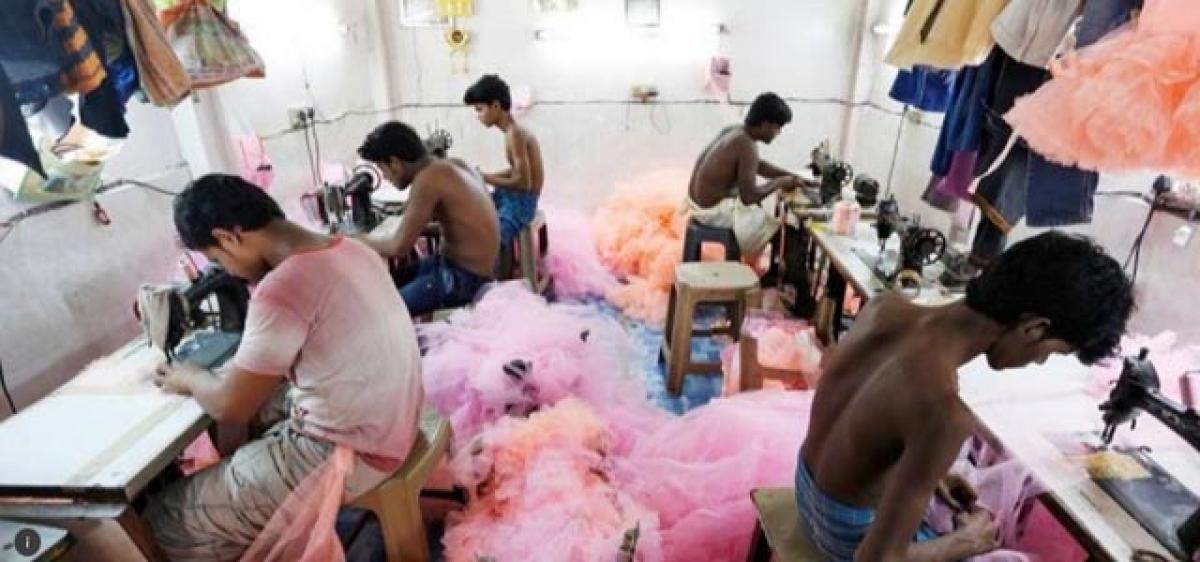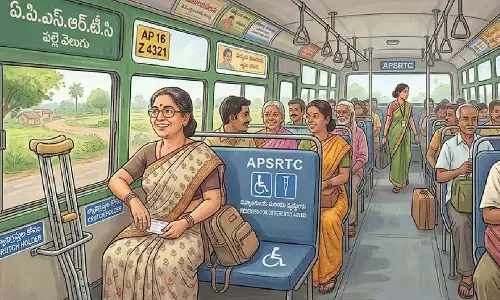New textiles package ignores workers’ woes

An Indian government initiative to create millions of jobs and increase exports in the textile and garment industries could put vulnerable workers at greater risk, activists said, calling for better enforcement of existing labour laws.
Chennai : An Indian government initiative to create millions of jobs and increase exports in the textile and garment industries could put vulnerable workers at greater risk, activists said, calling for better enforcement of existing labour laws. A package to generate 10 million jobs and boost exports by $30 billion over three years has been unveiled, but the measures, including cutting overtime, have raised concerns about workers' rights.
India is one of the world's largest textile and garment manufacturers, supplying many leading international brands. The $40-billion-a-year industry employs around 45 million workers. Workers' rights campaigners say the industry is built on the back of cheap contract labour.
"Creating more jobs will only mean even less regulation on the floor, with managements happily taking in new workers and firing old ones," said Jayaram K R, a member of the Garment and Textile Workers' Union (GATWU), based in Bengaluru. "There are numerous labour laws that already exist and most of them are not being implemented in factories."
The "labour-friendly" measures approved by the Indian cabinet include capping overtime for workers at 8 hours a week in line with International Labour Organization (ILO) norms in order to create more jobs. The government also plans to subsidise employers' social welfare contributions for workers. It said most new jobs would go to women, who already make up 70 per cent of the workforce in the industry, "helping in social transformation through women's empowerment".
But Gopinath Parakuni, general secretary of Cividep India, which campaigns for workers' rights, said the new measures would not help workers, and urged tighter regulation to stop workplace abuses. "When there are increasing cases of human rights violations being reported from the sector, better regulation is required. Instead, the government is dangling a carrot to the industry by offering subsidies to make more profits," he said.
"The industry is moving towards 'piece rate', where a worker is paid depending on how many pieces of garment she completes in a day," Parakuni told the Thomson Reuters Foundation. "Pressure on the worker has increased and in the name of labour flexibility, managements have been given an upper hand to hire and fire at will."
A government presentation on the reform package highlighted that in recent years Bangladesh and Vietnam have overtaken India in garment exports. "This is what they want to fix and workers' welfare is not the focus," Jayaram said. "Managements are happy hiring migrant contract workers because it means no additional benefits have to be given. Even minimum wages are sometimes a fight." A long-standing demand of activists, not been addressed in the new programme, is to allow workers freedom of association and give them a voice in wage and pension negotiations.
No end to exploitation
- The $40-billion-a-year industry employs around 45 million workers
- Creating more jobs should not lead to managements firing old workers
- Numerous existing labour laws are mostly not implemented by companies
- Better regulation and oversight required in view of rights abuses
- Exploitative conditions set in as firms seek to pay per piece
- Workshop pressures, hire & fire policy adding to workers' woes
By Anuradha Nagaraj







